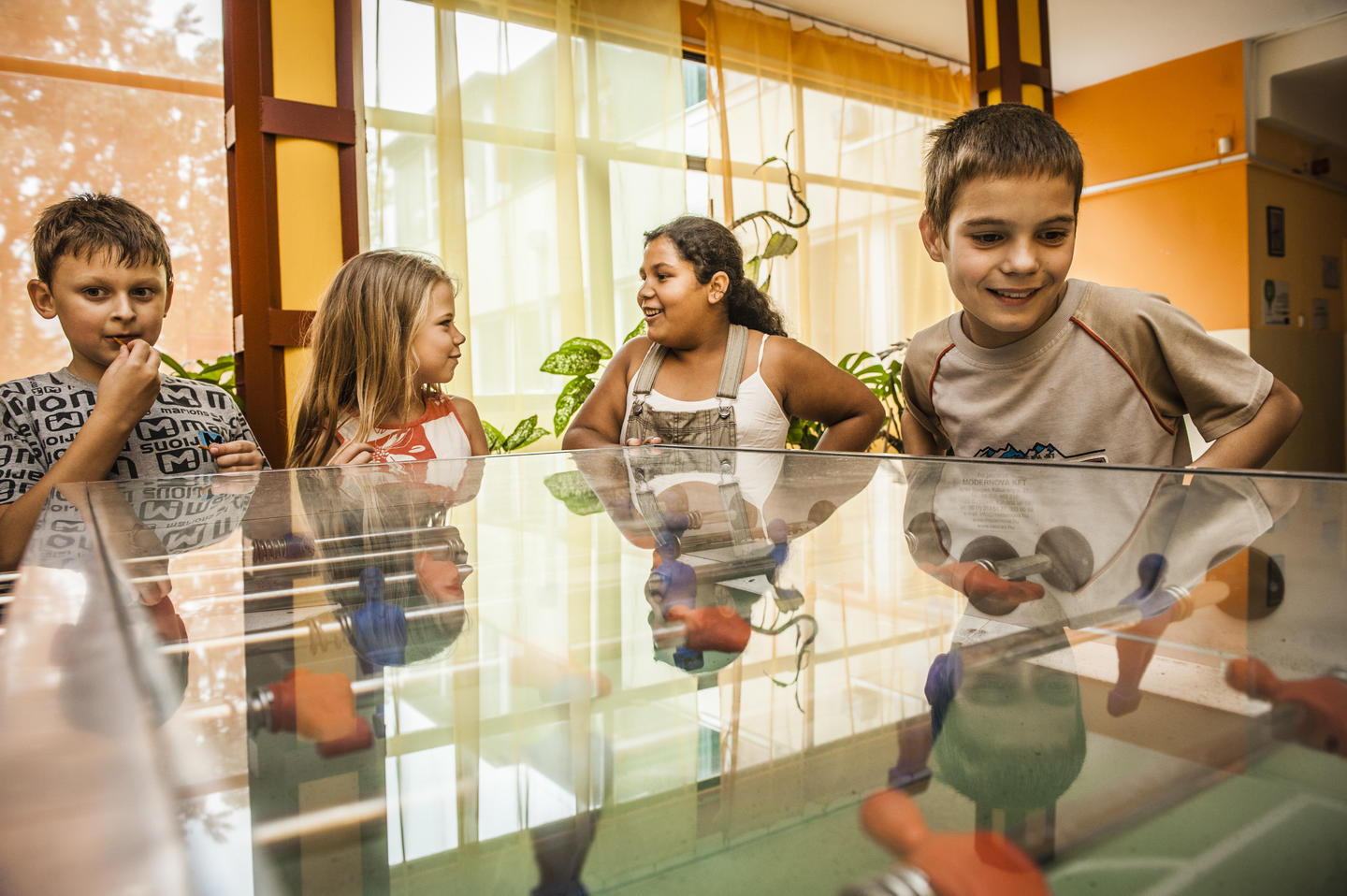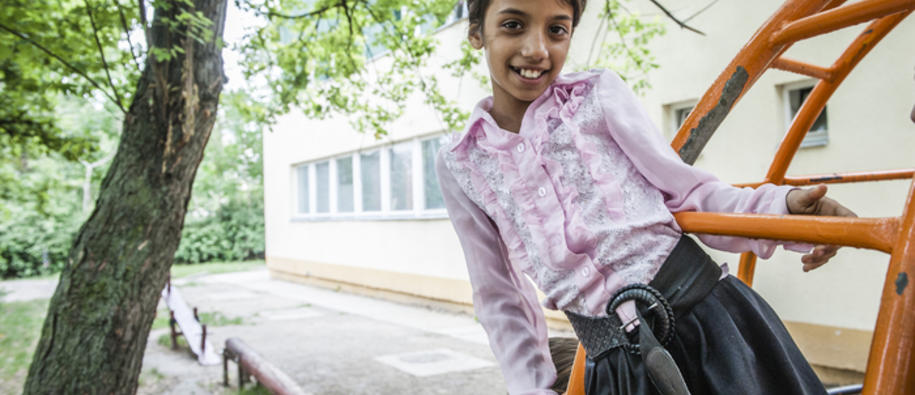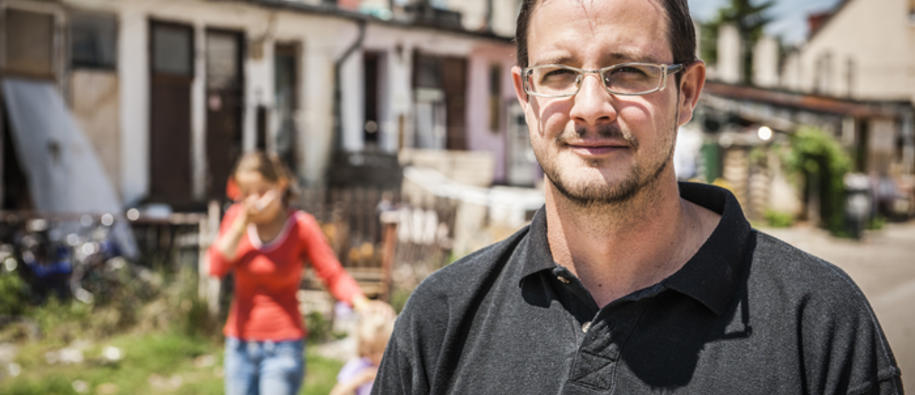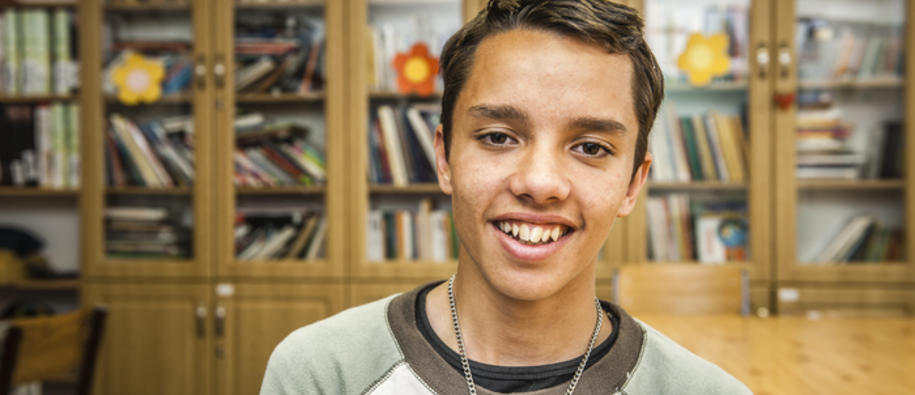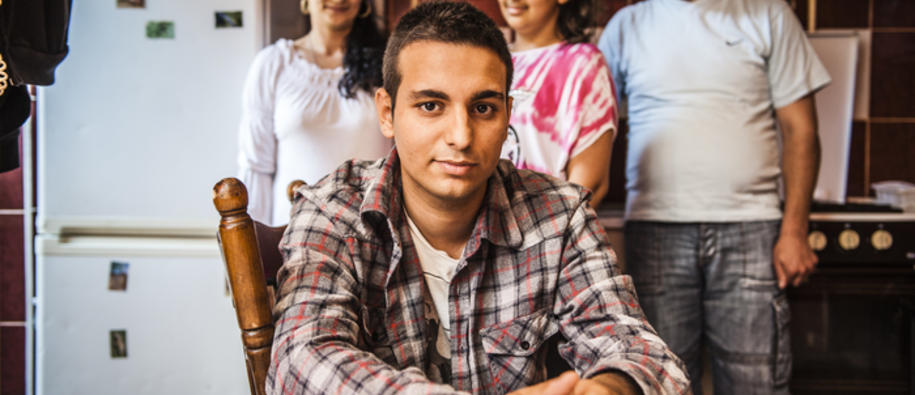The estimated 10-12 million Roma population is Europe’s largest ethnic minority and also one of its most vulnerable groups. A survey by the EU Fundamental Rights Agency (2012) covering 11 EU countries shows that one in three Roma is unemployed, 20% are without health insurance and 90% live below national poverty lines.
In February 2012, the Council of Europe Commissioner for Human Rights issued a report showing how discrimination and human rights abuses against Roma are widespread. The EU acknowledges this challenge and, as of 2012, all member states are obliged to provide strategies for social inclusion and the improvement of the situation for Roma.
Roma inclusion in the EEA and Norway Grants
Roma inclusion is an important concern for the EEA and Norway Grants, in line with and complementary to the national Roma inclusion strategies. Where relevant and possible, Roma concerns are included in the programmes that are now being established in 15 EU countries.
Programmes that include initiatives to improve the situation for the Roma are being established in 9 EU countries: Bulgaria, the Czech Republic, Greece, Hungary, Portugal, Romania, Slovakia, Slovenia, and Spain. Several of these countries have large Roma minority populations. In Bulgaria, the target is for 10% of the total funding to go towards improvement of the situation for the Roma population. In Romania, the same 10% target applies to all relevant programmes.
These programmes will address school attendance and teaching of the Romany language, access to healthcare, access to and fair treatment in the justice system, tolerance and anti-discrimination. In addition, NGO funds will channel support to civil society organisations to improve the situation of the Roma.
An overview of the programmes that will positively impact the conditions for the Roma population is provided below.
Cooperation with the Council of Europe
The Council of Europe (CoE) plays an important role in defending and supporting vulnerable groups and minorities and in countering discrimination. In 2011, the EEA and Norway Grants entered into a partnership with the CoE to harness its expertise within the areas of justice, human rights and social inclusion in order to maximise the impact of the Grants.
The Council of Europe is today involved as a partner in all programmes that target the needs of vulnerable groups, which includes the Roma, and in programmes that directly concern improving conditions of the Roma population. The CoE is involved in these programmes from the very start, by advising on the design of the programme, through the implementation of the programme and the projects this will support.
Photo series: Roma in Hungary
Education for children and youth from vulnerable groups, including Roma, is a priority. The photos below were taken in June in Hungary.
At the Burratino School on the Csepel island, Budapest, children from underprivileged families come to learn and live in a safe and inspiring environment. Many of the children at the school are Roma. The school was upgraded with support from the Norway Grants and can now provide better facilities and education.
EEA and Norway Grants: relevant programmes that include the Roma population
Country Programme supported by the EEA and Norway Grants How Roma is targeted Total allocation to the programme
Bulgaria*NGO fundParts of the funding goes towards the needs of vulnerable groups, including the Roma€11,790,000
Children and youth at risk**The programme focuses on school attendance, including the specific needs of Roma children€7,860,000
Public health initiativesThe specific health challenges for the Roma population is a priority€13,325,000
Domestic and gender-based violence**The specific needs of vulnerable groups such as Roma is addressed €2,000,000
Judicial capacity-building and Cooperation/Improvement of the efficiency of justice**The programme focuses on the specific needs of vulnerable groups such as Roma€3,000,000
The Czech RepublicNGO fundThe NGO fund targets the needs of minority groups including Roma€9,810,000
Children and youth at riskThe needs of minority groups are in focus€4,298,000
Local and regional initiatives to reduce national inequalities and to promote social inclusionInitiatives to strengthen anti-discriminatory measures for groups that are vulnerable to social and economic exclusion are being developed. The programme also addresses the specific needs of the Roma population.€1,242,000
Cultural heritageThe investment supports the cultural diversity and cultural expression of minority groups€21,490,000
Schengen cooperation and combating cross-border and organised crime, including trafficking and itinerant criminal groupsThe programme emphasises good cooperation between law enforcement authorities and the general public, especially minority groups€7,040,000
GreeceNGO fundThe specific needs of migrants and Roma is targeted€6,340,000
HungaryNGO fundRoma-related issues is targeted€12,618,000
Children and youth at risk**The most vulnerable groups, including the Roma, is targeted €11,216,000
Public health initiativesThe most vulnerable groups, including the Roma, are targeted€16,640,000
PolandCultural heritage5% of the allocation to cultural heritage is earmarked documentation of cultural history, including the history of ethnic and national minorities€60,000,000
PortugalPublic health initiatives Reducing inequalities in health and promoting equal access to healthcare are prioritised €10,000,000
Romania*NGO fundThe needs of minority groups, Roma in particular, are being addressed€30,000,000
Children and youth at risk and local and regional initiatives to reduce national inequalities and to promote social inclusion**The programme addresses the needs of Roma through strengthened cooperation within and between local governments, NGOs and the Roma population. Municipalities with a high percentage of Roma population are given priority when addressing issues such as social inclusion, multicultural education and employment€22,000,000
Mainstreaming gender equality and promoting work-life balanceThe needs of minority groups are addressed, with a specific emphasis on Roma€4,519,478
Cultural heritageDocumentation of cultural history of social, ethnic and cultural minority groups is a priority. The Astra museum is establishing a Roma homestead€20,818,750
Research within priority sectorsMinimum 10% of the investment in research should target the improvement of the situation for the Roma people€20,000,000
ScholarshipsMinimum 10% of the investment in scholarships should target the improvement of the situation for the Roma people€4,000,000
Public health initiativesThe programme addresses the needs of minority groups with a specific focus on Roma€8,104,000
Domestic and gender-based violence**Minimum 10% of the investment to tackle domestic and gender-based violence should target the improvement of the situation for the Roma people€4,000,000
Schengen cooperation and combating cross-border organised crime, including trafficking and itinerant criminal groupsMinimum 10% of the investment in schengen cooperation and the fight against cross-border organised crime should target the improvement of the situation for the Roma people€5,000,000
Judicial capacity-building and cooperation**Minimum 10% of the investment in judicial capacity-building and cooperation should target the improvement of the situation for the Roma people€8,000,000
Correctional servicesIncreased focus on vulnerable groups in prison€8,000,000
SlovakiaNGO fundThe needs of vulnerable groups, including Roma, are addressed€6,903,000
Local and regional initiatives to reduce national inequalities and promote social inclusion** The needs of vulnerable groups such as Roma are targeted €1,000,000
SloveniaNGO fundFocus on cross-sectorial partnerships in addressing the needs of children and youth at risk as well as vulnerable groups such as Roma€1,875,000
Public health initiativesThe needs of vulnerable groups such as the Roma are being addressed€10,228,000
SpainNGO fundThe specific needs of vulnerable groups are being addressed€4,585,000
Mainstreaming gender equality and promoting work-life balanceThe programme focuses on inclusion of Roma women€10,191,250
*10% of the total funding for relevant programme areas goes towards improving the situation for the Roma population
** Council of Europe is programme partner
